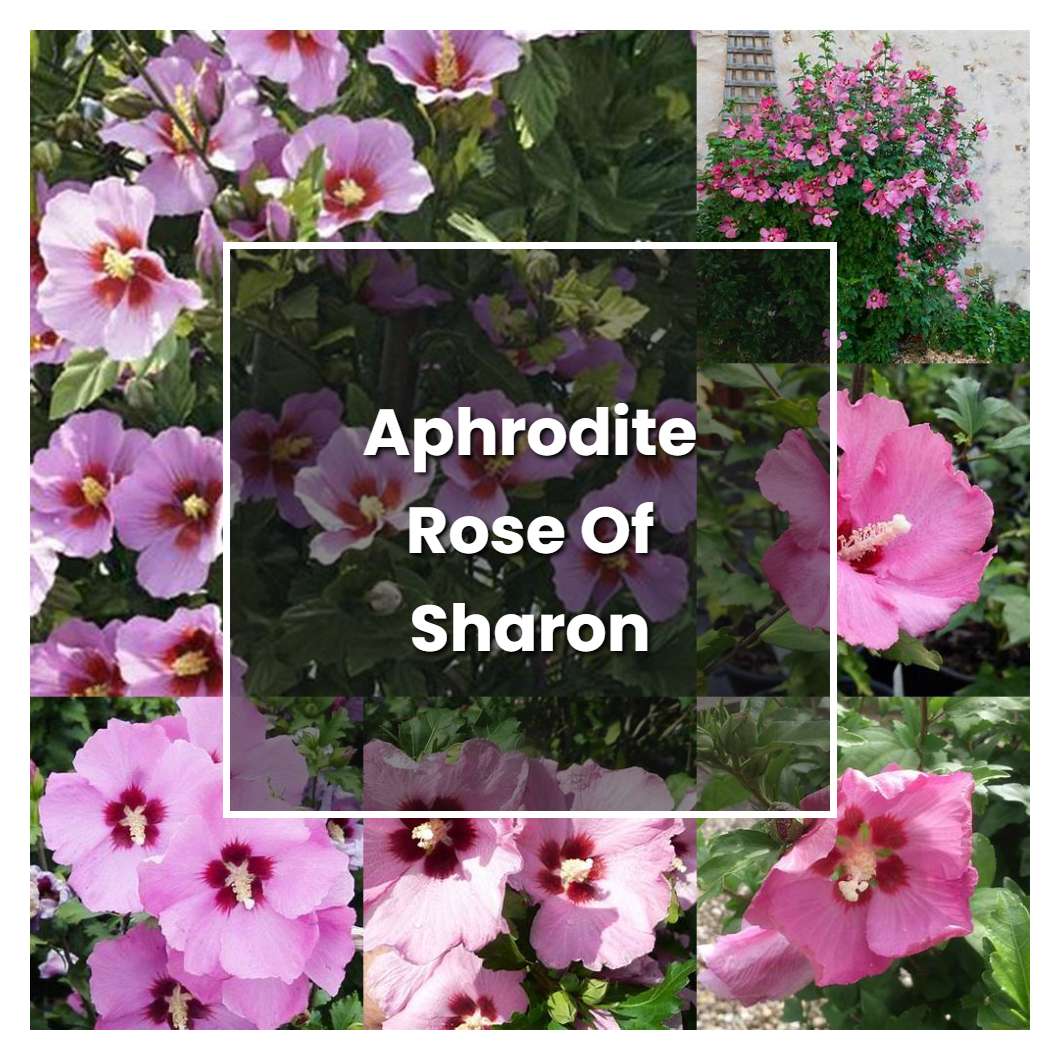Aphrodite rose of sharon is a beautiful plant that is native to China. It is a deciduous shrub that can grow to be about 6 feet tall. The leaves of the plant are ovate-shaped and have toothed margins. The flowers of the plant are white or pink and have five petals. The fruit of the plant is a black drupe.

Related plant:
Aphrodite Sweetshrub
Related plant:
Calycanthus Aphrodite
About soil condition, the Aphrodite Rose of Sharon prefers well-drained soil, but can tolerate a wide range of soil types as long as it is not waterlogged. It is somewhat drought-tolerant once established.
Like the other roses, the Aphrodite Rose of Sharon needs plenty of sun to thrive. It's best to plant it in an area that gets at least six hours of sunlight each day. If you live in an area with hot summers, you may need to provide some afternoon shade to prevent the leaves from burning.
The temperature condition inside the Aphrodite Rose of Sharon was very warm. The flowers were blooming and the bees were buzzing around. The smell of the roses was overpowering. I was sweating profusely and my heart was racing. I felt like I was going to faint. I had to sit down and take a few deep breaths. After a few minutes, I felt better and was able to continue my tour.
Ideal humidity condition for this plant is between 40% - 60%. Room temperature should be between 65°F - 75°F. When the plant is actively growing, water it when the soil begins to feel dry to the touch. Water the plant until water flows out of the drainage holes at the bottom of the pot. Allow the plant to drain thoroughly before placing it back in its saucer. During the winter months, when the plant is dormant, water it only enough to keep the soil from completely drying out.
About fertilizer, this family of plant nutrients is important for healthy growth, but too much can damage delicate roots. The nutrient-rich water that flows from the bottom of a mature rose bush is ideal for other plants, so avoid using it on new or young roses.
Pruning your Aphrodite Rose of Sharon is essential to maintaining its growth and shape. To do this, you'll need to remove any dead or damaged branches, as well as any that are growing in an undesirable direction. You can prune your plant in late winter or early spring, before new growth begins.
Propagation is typically done by taking cuttings from new growth in late spring or early summer. The cuttings should be 4-6 inches long and taken from the tips of the stems. The bottom leaves should be removed and the cuttings should be placed in moist soil. Once the cuttings have rooted, they can be transplanted into individual pots.
Usually, the plant growth rate and size is determined by the species. However, growing conditions, including temperature, moisture, and nutrients in the soil, also play a role in plant growth. Aphrodite rose of sharon generally grow best in warm, humid conditions with plenty of moisture and nutrients available in the soil.
Common problems for this kind of plant are stem and root rot, white powdery mildew, rust, and aphids. These problems can be controlled by proper cultural practices and the use of fungicides, insecticides, and herbicides.
Source:
Rose of Sharon varieties give options for gardens
Rose of Sharon has high growth potential - Mississippi State
Aphrodite (Venus): The oft-invoked goddess of love
